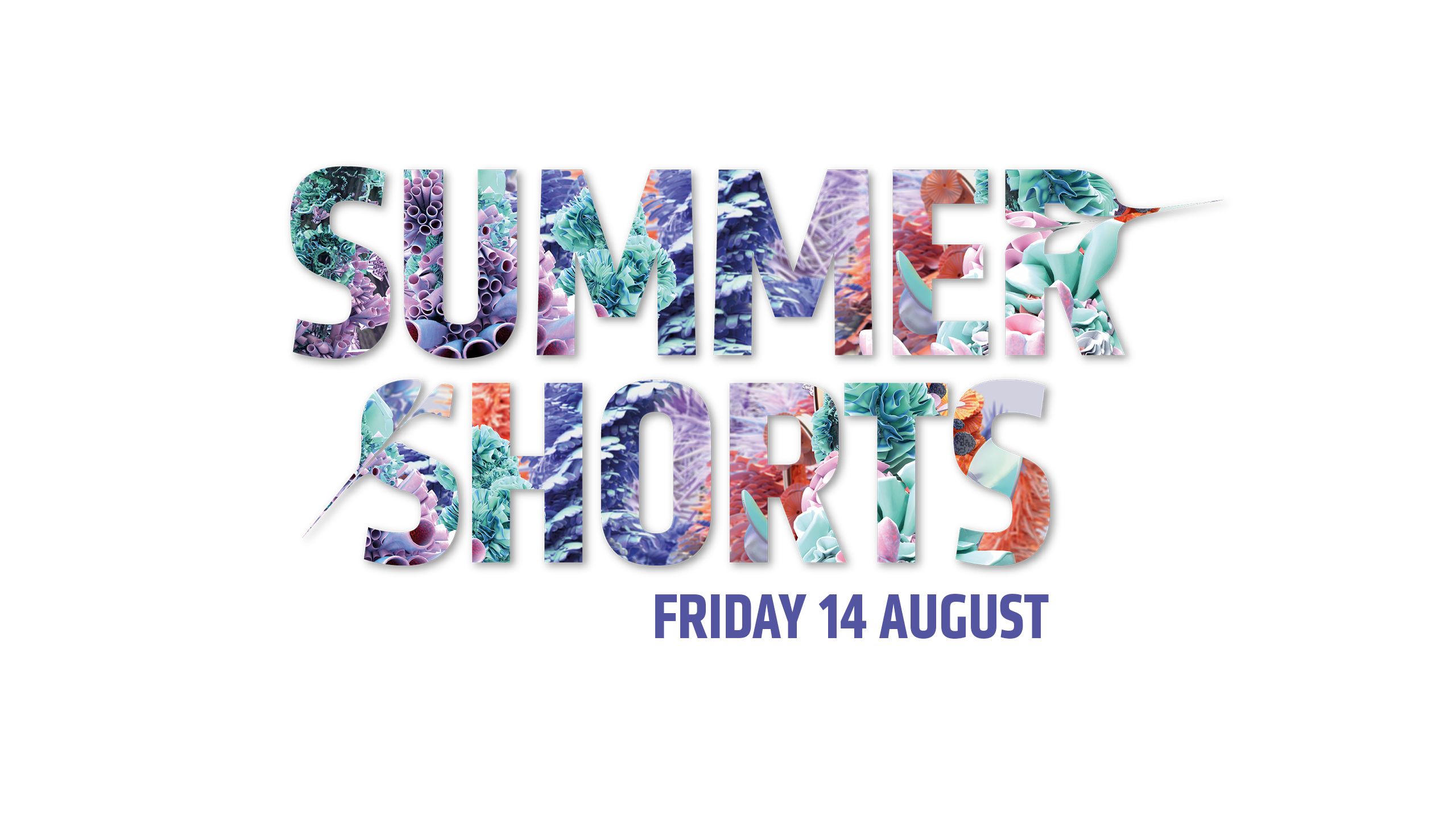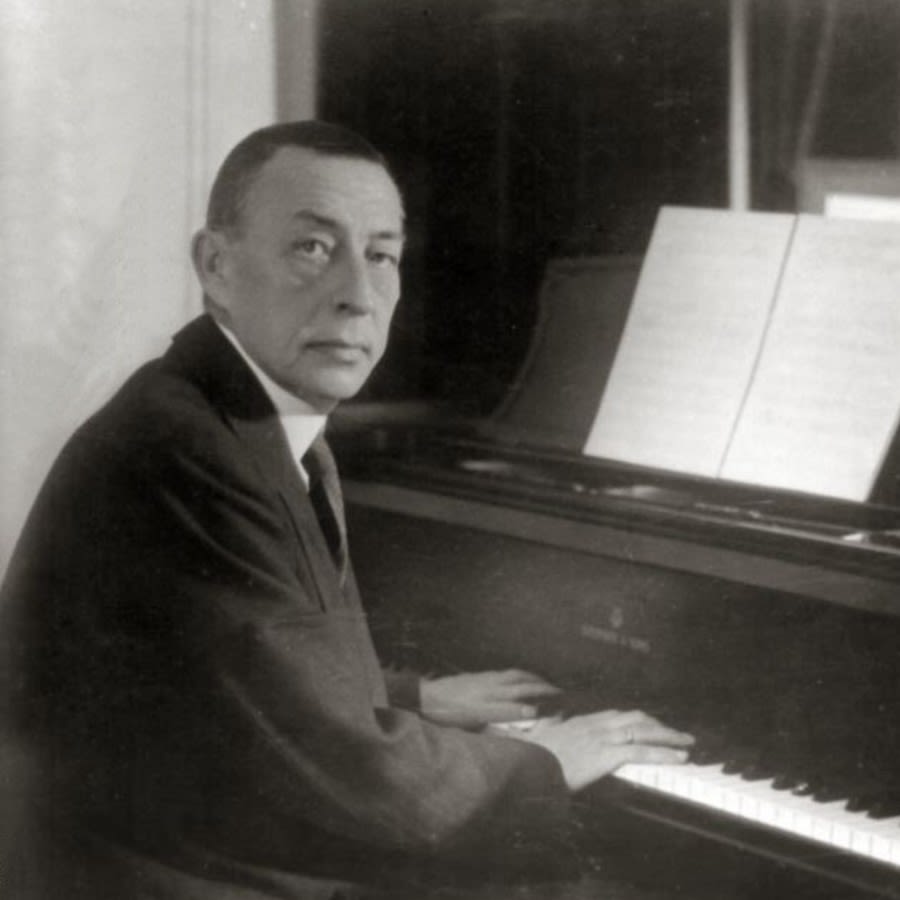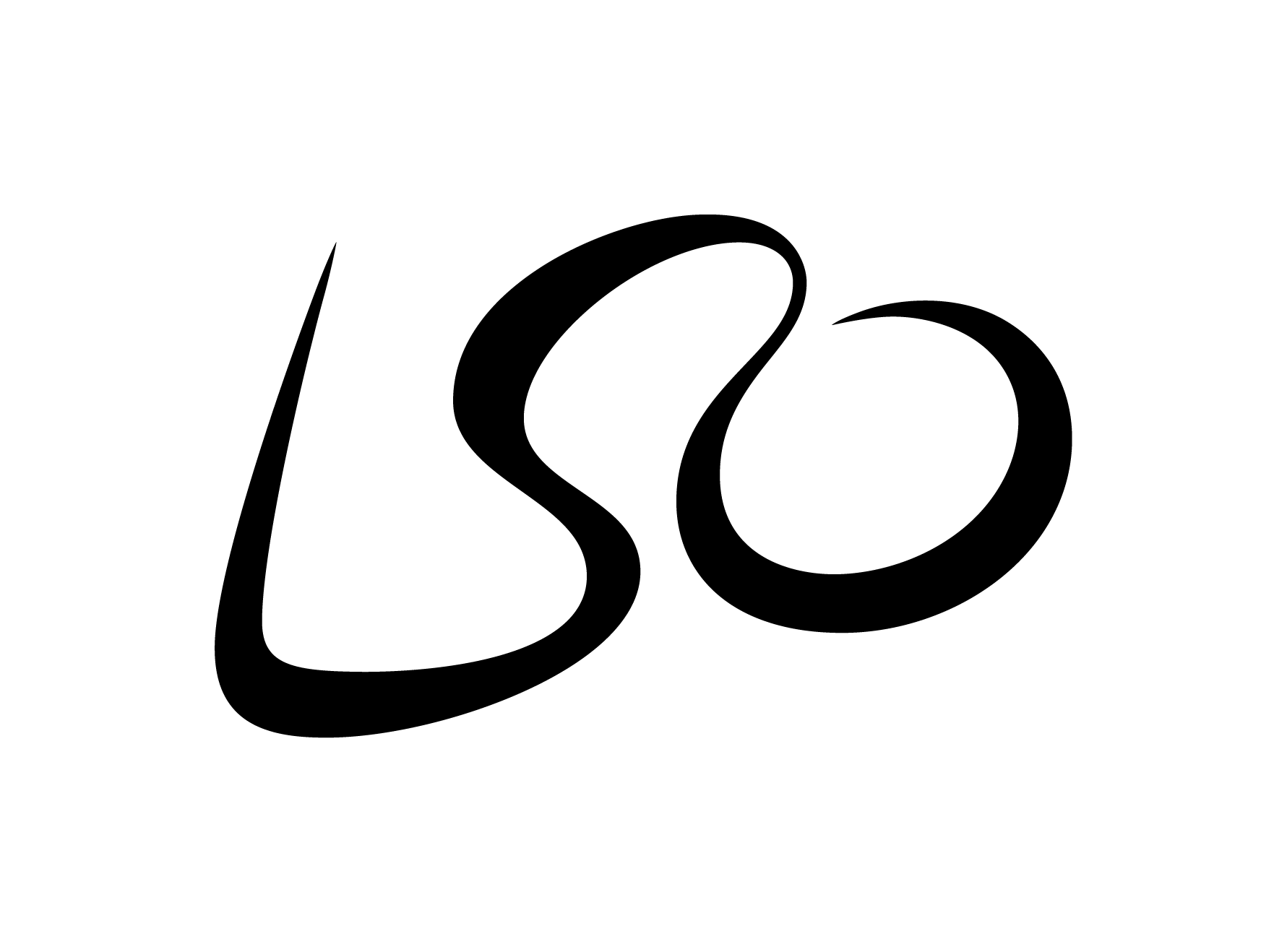
Thank you for joining us for LSO Summer Shorts.
We are delighted to see live music return to LSO St Luke's as LSO musicians and friends come together throughout July and August for a series of chamber-scale concerts.
We are very grateful for the bequest of the late Ms Denise Antenen and the generous support of our Technical Partner, Yamaha Professional Audio, which have made this series possible.
It is a pleasure to invite you to join us online, and I hope you enjoy these performances.

Kathryn McDowell CBE DL; Managing Director
Kathryn McDowell CBE DL; Managing Director
Today's programme:
Judith Lang Zaimont 'Nocturne' from Russian Summer Piano Trio
Hannah Kendall A Winged Spirit
Rachmaninoff Trio élégiaque No 1
Belinda McFarlane violin
Jennifer Brown cello
Elizabeth Burley piano
Today's performance features Yamaha's flagship CFX Concert Grand Piano.
Visit our website for information on how we are ensuring activity at our venue LSO St Luke’s is COVID-19 secure.
The support of our audience has truly never been more important for the Orchestra and its world-class artistic programme. By supporting us now and in the months to come, you will help us to continue to adapt our music-making and activities to meet the challenges of these times, including sharing the gift of music with our local communities through our LSO Discovery programme.
Today's Programme in 60 seconds
with Belinda McFarlane
'One of my favourite genres of chamber music, the piano trio brings three instruments together – violin, cello and piano – highlighting each instrument as a soloist and also creating an entity of its own. All three of us today have performed in this genre with our own trios over the years, and we are delighted to come together again here at LSO St Luke's.
Judith Lang Zaimont describes her Nocturne as a static sarabande (a dance form dating back to the 16th century) inspired by nature. The piece ebbs and flows, depicting the natural rhythms of sounds and images of summer – dappled sunlight, breeze in the trees, the smell of sunshine on the grass.
Hannah Kendall’s A Winged Spirit is a fantasy ‘miniature’ for violin and piano, inspired by a work of Joseph Cornell (pictured below). It begins with delicate piano and an expansive violin line, gradually melting into the world of the piano to end.
In a single movement, the Trio élégiaque by Rachmaninoff encapsulates his trademark style of lyricism and elegance with an underlying darkness. Written when he was just 18, it reflects his great admiration for Tchaikovsky – with chordal quotes from Romeo and Juliet Overture, and the appearance of a funeral march as the coda.

Joseph Cornell, Untitled (Celestial Fantasy with Tamara Toumanova), c 1941
Joseph Cornell, Untitled (Celestial Fantasy with Tamara Toumanova), c 1941
Here is a winged spirit, an angel or fairy – a universal symbol connecting the known and unknown, the familiar and unfamiliar. It is a perfect link between our two outer works today. Maybe it is also a reflection of the current state we find ourselves in, as we enter our ‘new normal’.'
Talk to Us
Let us know what you think throughout the concert: join the YouTube live chat or get in touch on Instagram, Twitter or Facebook with the hashtag #LSOsummershorts.
Take part in the live Q&A at the end of the concert by posting your questions in the live chat on YouTube or tweeting us at @londonsymphony with the hashtag #LSOsummershorts.
Judith Lang Zaimont
Nocturne from Russian Summer Piano Trio
1989

Judith Lang Zaimont's Piano Trio No 1 'Russian Summer' is inspired by the composer’s family heritage, drawing on Russian, Polish and Hungarian roots. Pointing to the warmer summer months during which the work was composed, perhaps it was on those balmy evenings that she drew inspiration for today's movement, Nocturne (a nocturne usually represents evening time).
Nocturne opens with a wistful theme, violin in the upper register supported by piano and cello in beautiful textures and harmonies below. Halfway through the movement, the melody intensifies with tremolo strings (rapid use of the bow to create intensity). From here, the music ebbs and flows between wistful and dramatic passages depicting a restlessness before closing in gentle hushed tones with the calm of the night.
Programme note by Niamh Collins
Judith Lang Zaimont
b 1945
Judith Lang Zaimont is internationally recognised for her music’s distinctive style, characterised by expressive strength and dynamism. A grantee of both National Endowments, winner of the 2015 The American Prize in Chamber Music Composition and a 2003 Aaron Copland Award winner, she has enjoyed a distinguished career as composer of over 100 works with performances by the Philadelphia Orchestra, Baltimore Symphony, Camerata Bern, Berlin and Czech Radio symphonies and the Kremlin Chamber Orchestra.
Her music is widely performed throughout the US and Europe and has been recorded for the MSR Classics, Naxos, Navona, Koch Classics, Arabesque, Milken Family Foundation, Albany, Jeanne, Leonarda, Northeastern and 4Tay labels. Her principal publishers are Subito Music, Galaxy/ ECS, Jeanné and Vivace. She is a distinguished teacher and pianist, and creator and editor-in-chief of the critically acclaimed book series The Musical Woman: An International Perspective.
Hannah Kendall
A Winged Spirit
2018

A Winged Spirit is inspired by painter Joseph Cornell’s untitled artwork of the internationally acclaimed Russian ballerina Tamara Toumanova (1919–96). A fantastical collage, the work depicts Tamara as a fairy-like figure in a weightless scene that fuses deep sea and deep space; incorporating shells, marine life, and cosmological features, blended together with a white, speckled haze.
With an opening instruction to the piano accompaniment to play in a 'charged, roused' and 'persisting' manner, the listener's attention is instantly captured with driving semi-quaver patterns in this short and captivating piece. The violin soon enters in a 'smooth' and 'dreamlike' state, before the closing bars present a stark contrast with minimal piano accompaniment, pizzicato violin (plucking of the strings) and an abrupt ending that leaves us in a sudden silence.
This work was commissioned by London Music Masters for Many Voices, a collection of new violin and piano works for young people, in the charity's 10th anniversary.
Programme note by Hannah Kendall and Niamh Collins
Hannah Kendall
b 1984
Described as ‘intricately and skillfully wrought’ by The Sunday Times, Hannah’s music has attracted the attentions of groups including the London Philharmonic Orchestra, Bournemouth Symphony Orchestra, BBC Singers, and Philharmonia Orchestra with performances at the Royal Festival Hall, Queen Elizabeth Hall, Purcell Room, the Royal Opera House's Linbury Studio Theatre, The Place, Westminster, Canterbury, Gloucester and St Paul’s Cathedrals, Westminster Abbey and Cheltenham Music Festival. Hannah's works have also been broadcast on BBC Radio, including 'Composer of the Week' in March 2015, and 'Hear and Now' in October 2016.
In 2015, Hannah won the Women of the Future Award for Arts and Culture. She is deeply committed to contemporary culture as a whole and often works collaboratively with artists from other art forms. Hannah is currently based in New York City as a Doctoral Fellow in composition at Columbia University.
Recent projects
One-man chamber opera for baritone Eric Greene, The Knife of Dawn (2016)
The Spark Catchers (2017) recorded live at the 2017 BBC Proms and featured on Chineke!'s Spark Catchers album
2020 commission from The Riot Ensemble and Huddersfield Contemporary Music Festival for Zeitgeist
Rachmaninoff
Trio élégiaque No 1
1892

This single movement work was written in the year of Rachmaninoff’s graduation when he was just 19 years old, but was not published until after his death. Inspired by Tchaikovsky's Piano Trio in A minor (Tchaikovsky would pass away in the following year), the work gives a glimpse into Rachmaninoff's mature style with melancholic, lush harmonies and the pianistic virtuosity for which he would become famous.
The opening slow string accompaniment builds gradually before the piano enters with its mournful theme and a sense of momentous importance. Strings blossom and help to develop the opening theme, creating a rich amalgamation of the trio ensemble. New melodic material almost has the effect of introducing a new movement in the middle section, before we eventually return to the opening theme in the recapitulation. The ending coda again pays homage to Tchaikovsky by restating the original theme as a funeral march.
Programme note by Niamh Collins
Sergei Rachmaninoff
1873–1943

Although the young Sergei’s father squandered much of the family inheritance, he at first invested wisely in his son’s musical education. In 1882 the boy received a scholarship to study at the St Petersburg Conservatory, but further disasters at home hindered his progress and he moved to study at the Moscow Conservatory. Here he proved an outstanding piano pupil and began to study composition.
Rachmaninoff’s early works reveal his debt to the music of Rimsky-Korsakov and Tchaikovsky, although he rapidly forged a personal, richly lyrical musical language. His First Symphony of 1897 was savaged by the critics, which caused the composer’s confidence to evaporate. In desperation he sought help from Dr Nikolai Dahl, whose hypnotherapy sessions restored Rachmaninoff’s self-belief and gave him the will to complete his Second Piano Concerto. Thereafter, his creative imagination ran free to produce a string of unashamedly romantic works divorced from newer musical trends. He left Russia shortly before the October Revolution in 1917, touring as pianist and conductor and buying properties in Europe and the United States.
Did you know…?
Rachmaninoff could span an extraordinary twelve piano keys with each hand. It's been speculated that he had Marfan’s syndrome, a disorder of the body’s connective tissues which allowed him to spread his fingers so wide.
Listen to…
Symphonies Nos 1, 2 and 3 and Symphonic Dances on LSO Live
Artist Biographies
Players on Stage


L to R: Jennie, Elizabeth, Belinda
L to R: Jennie, Elizabeth, Belinda
Belinda McFarlane
violin
From Adelaide, South Australia, Belinda came to London as Leader of the Australian Youth Orchestra for the BBC Proms. She liked it so much, she stayed, and continued further studies with Emanuel Hurwitz and Carmel Kaine. After a period of freelancing and busking, Belinda joined the Second Violins of the LSO.
For many years a member of the fiorini piano trio, and currently a member of the Australian World Orchestra, she has led music workshops in Australia, UK, Zimbabwe and India. Belinda also teaches chamber music at the Junior Guildhall School of Music & Drama and returns frequently to Australia for the Australian Youth Orchestra as an orchestral and chamber music director, tutor and mentor.
Jennifer Brown
cello
On our blog: 40 years on, an interview with Jennifer Brown
Long-standing LSO cellist Jennie tells us about her career in music and how orchestral life has changed since the 1980s.
Jennie Brown was born in London into a family of eminent musicians. She studied at the Royal Academy of Music where she won many prizes. Following in the family’s footsteps, Jennie became a member of the orchestra of the Royal Opera House aged 21 and was appointed sub-principal the following year. After five years, Jennie moved to her current position as cellist in the London Symphony Orchestra, working with some of the world’s finest soloists and conductors.
Jennie has travelled extensively in Japan with her string quartet. As a member of the Tzigane Piano Trio, Jennie has recorded the complete piano trio works by Cécile Chaminade. Jennie has been appointed an honorary Associate of the Royal Academy of Music for distinction in the profession.
Elizabeth Burley
piano
Elizabeth Burley enjoys a varied career as a chamber musician and orchestral pianist. She has given concerts throughout the UK, Europe, Japan and North America with many leading soloists including Håkan Hardenberger, Michael Collins, Isabelle van Keulen, Philippe Graffin and Robert Cohen. She has made numerous chamber music recordings including piano duets with Kathryn Stott.
As an orchestral pianist, Elizabeth performs regularly in concerts, tours and recordings with orchestras including the London Symphony Orchestra, BBC Symphony Orchestra and the Philharmonia. In the 2004 Proms season she made her debut as a solo artist in a performance with the BBC Symphony Orchestra. She has broadcast regularly on BBC radio and television and for many years was official accompanist of the BBC Young Musician of the Year Competition. She is a member of the keyboard faculty at the Royal College of Music.
Thank You for Joining Us
The support of our audience has truly never been more important. You can help us to continue to adapt our music-making and activities to meet the challenges of these times.
You can also donate now via text.
Text SUMSHORTS 5, SUMSHORTS 10 or SUMSHORTS 20 to 70085 to donate £5, £10 or £20.
Texts cost £5, £10 or £20 plus one standard rate message and you’ll be opting in to hear more about our work and fundraising via telephone and SMS. If you’d like to give but do not wish to receive marketing communications, text SUMSHORTSNOINFO 5, 10 or 20 to 70085.
Thank you.
If you liked this, Belinda suggests…
- Tchaikovsky's Piano Trio
- 'Romp' from Judith Lang Zaimont's Russian Summer Piano Trio
- Hannah Kendall's Vera for clarinet, violin, viola and cello
- Elizabeth Maconchy's String Quartet No 11
- Frank Bridge's Phantasie for Piano Trio in C minor
Keep Exploring
- Subscribe to our YouTube channel, where you can watch over 500 videos.
- Follow us on Facebook, Instagram and Twitter for quizzes, listening suggestions and more.
- Find us on Apple Music to listen to all our recordings.
- Sign up to our email list to be the first to hear about our new programme.
Keep reading to find out what's coming up next week…
Next week: Friday 21 August
Chick Corea arr Simon Carrington Duet Suite
Gwilym Simcock Quintet
Gwilym Simcock Barber Blues
LSO Percussion Ensemble



